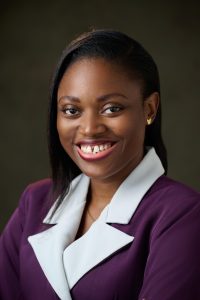- 29 July, 2021
- Posted by: Jane Oluwadare
- Categories: Deborah's Court, Jane's Thoughts, PHRONESIS Lighthouse
(This was written as a long string on my WhatsApp status, and would be finished up in an upcoming Newsletter to the PKH Tribe. Yup! That’s a prompt to subscribe if you haven’t already)
Forgive and forget? Let’s take a look at it
Christ commanded us to forgive …77 times 7. It is a definite requirement for a believer. and if love is your operating system (as I really hope it is), then you know that forgiveness is an important thing. You need to let things go so they don’t clog your heart.
However, what I am yet to see is His commandment to forget. (If you have, please point me to it. You can send me an email or leave it in the comment section)
Instead, what I see threaded throughout Scripture is a loving God, who forgives repeatedly, and blots out the memory of your wrongdoing, However, in the face of a repeated pattern of behavior, sets consequences and follows through His love, mercy and forgiveness is balanced with judgment
If He does not judge, He would not be just
That said, what does that mean for us as believers?
1. Love. Do not hold on to offences
2. Love. Love them enough to call them out if they stray/err/hurt you
3. Wisdom. Speak with them directly. Not gossip or back biting. Until you speak WITH the offender, you are in sin yourself (swipe up if you want to talk further on this)
4. Respect. Their wrong doing is not basis for slander, insults or disrespect
Don’t let what they do to you become the basis for your own character to change. Remain true to yourself AND to your heavenly Father
You see that last point? Here’s what it also translates to:
SET BOUNDARIES!!!
You owe it to
– them
– yourself
– your God
– the assignments and commitments He has placed in your care
to show up as the highest, untainted version of yourself possible, and guard against sabotage. So do what needs to be done to prevent future recurrence… Do what needs to be done to prevent future recurrence with or without their cooperation (it’s better if they’re in the loop though. We do not want to lose people and relationships, or punish them for what they did. That privilege belongs to their Creator)
Did you notice that we have just worked through “forgiveness”? Also, did you notice these things need to come from within, and are not forced, imposed, commanded or demanded?
Thank you. I just wanted to make sure you’re still following. Let’s move on.
We’ve talked about the forgiving. Now let’s get to the forgetting
Like I said at the start of this piece, I am yet to come across the Biblical injunction to forget
Of course, when we forgive, we let go of the hurt, but to “forget” would place us in the position
– to be repeatedly hurt (especially by hypocritical people, manipulators and psychopaths which are sadly very real inclusions in our society today)
– to be sabotaged in our work (sometimes your work, vision, assignment is destroyed or set back by the actions of a repeat offender)
It is a decision that leaves us vulnerable, and open to hurt, and to choose to do this on the heels of being hurt and broken trust is a huge emotional demand. It’s not something to be rushed, to be glossed over, or to be trivialized. If not properly done, can leave the person feeling resentful, cheated, and struggle even more with forgiveness, trust, and even esteem. This is not something to shame someone about if they’re not there YET, and I have often found that the more you try to force it, the harder it becomes to do, and the longer it takes. Vulnerability, as well as the decision to trust, is not ever something to be demanded or forced – but allowed to blossom and emerge. The one thing you can do to encourage the possibility is to show yourself worthy. (Not nagging, not guilt-tripping, and definitely not ambushing them with a gang of people who are able to silence them)
We have talked about boundaries (please remember to set and enforce them). But now, we come to the crux of the matter – the agents of “forgive and forget”
It’s good to preach “peace” and support reconciliation, but when you do it at the expense of the person who was hurt, what you are really doing is to promote impunity, encourage sin and support sabotage
(I came in peace, really)
Let’s break it down:
1. Preaching forgiveness without holding the offender accountable to whatever consequences are necessary/lawful/just, AND enforcing the boundaries that help ensure a repeat sends the subconscious message that they can get away with it – or worse, get away with ANYTHING
#IsItNotJustToBeg
You teach the offender that they’re untouchable; you teach the hurt person that they don’t matter as the offender is more important than they are, and everyone watching (especially children) that that action has no consequence if they are on the “right”/powerful side
Gbam! A culture of impunity is born
2. “Forgive and forget” is not calling for peace. It is faux-peace ==> An appearance of peace that is not peace
It stifles the voice of the hurt person, teaches them that their emotions and feelings are not valid (especially compared to the offender, and the society) and that their interpretation of things cannot be trusted. Just like that, they’ve been hurt, and now you’re erasing them, and erasing their human agency
Demanding that they “forgive and forget” is attempting to automate the entire process we looked at in Part 1, so that you (an outsider) and the offender can feel comfortable
Haba! Don’t you guys fear God?
Allow them to feel, to process, to set consequences and boundaries etc. Pray for them, yes. Pray that the offender repents, that the hurt person heals
But take your hands of the timeline of the process
It’s in God’s hands, not yours
A quick recap of what we have learned so far: we need to forgive (no sense in holding an offence in our hearts, or holding it over the other person’s head), but we are not mandated to wipe our memory – that’s something we need to ask God for help to do. If you need more time to get over the hurt, let them know. There’s no point holding it over their heads – you can simply admit that you have forgiven (if you have), but that you need time to get over the hurt. You can share what they can do to help the process, but do not allow yourself to be bullied into “moving on” if you’re still holding on to it.
We need to be accountable, hold the people we love and work with to our shared values and set boundaries, but we do not get to legislate on how they feel if we hurt them, or how long it takes for them to work through the hurt


